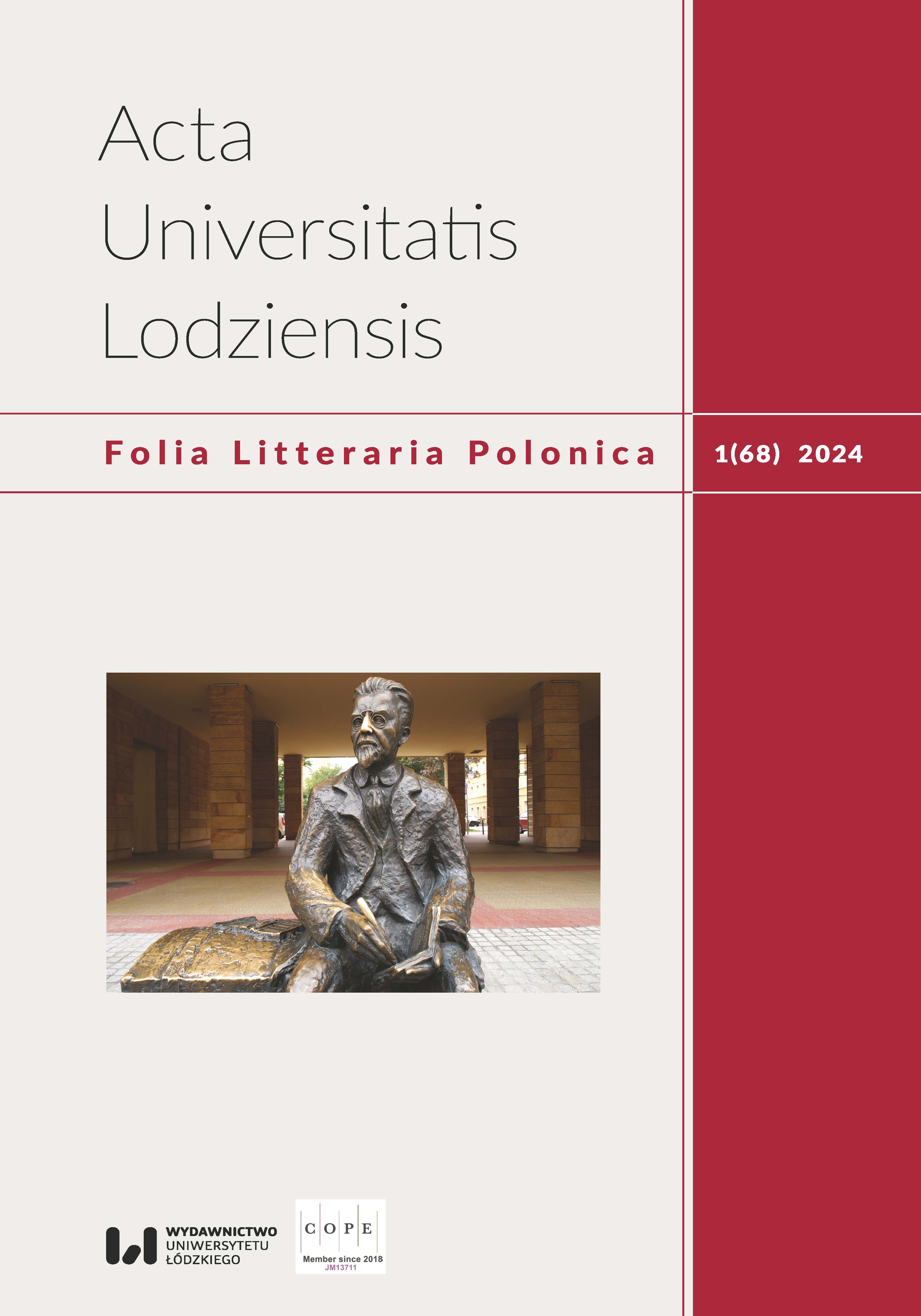Obraz powstania łódzkiego (21–25.06.1905) w lokalnej prasie polskojęzycznej
A picture of the Lodz Uprising (21–25.06.1905) in the local Polish-language press
Author(s): Adam MazurkiewiczSubject(s): Language and Literature Studies, Literary Texts
Published by: Wydawnictwo Uniwersytetu Łódzkiego
Keywords: Lodz Uprising; press report; “Goniec Łódzki”; “Rozwój”; Aesopian language
Summary/Abstract: The Lodz Uprising was the most important episode of the armed struggle during the revolution of 1905, taking place in the Kingdom of Poland. This was a consequence of the socio-economic tensions in Russia, which had been growing since the beginning of the 20th century. It had the character of a spontaneous uprising of workers, at the same time being the culmination of earlier clashes that took place on the streets of Lodz. These events were reported in the press on a local scale, as well as in the cross-country and international press. A special place was given to two ideologically oppositional periodicals, reporting (as locals) on the outbreak and fate of the uprising and its participants in statu nascendii. These were: the right-leaning “Rozwój” and the “Goniec Łódzki” perceived as a centre of leftwing thought. Both magazines – with their different strategies of describing the uprising – were also, which is not without significance, daily newspapers, able to react to events (as opposed to weeklies) in an immediate manner. The aim of the essay is to analyse how – in the reality of censorship – the Polish-language press in Lodz at the time informed about the events taking place in statu nascendii. The starting point was the assumption of the dominant role of the daily press in showing the fate of the Lodz revolution. For this purpose, the philological method was used, supported by rhetorical criticism. Reading texts of various genres devoted to the June uprising makes us aware of the importance of Aesopian language in the description of the excursions and the emphasis on detail, replacing the overall description, in accordance with the principle of pars pro toto. The results of the analysis of the discussed messages allow us to deepen our knowledge of the textual image of the described events.
Journal: Acta Universitatis Lodziensis. Folia Litteraria Polonica
- Issue Year: 68/2024
- Issue No: 1
- Page Range: 79-105
- Page Count: 27
- Language: Polish

